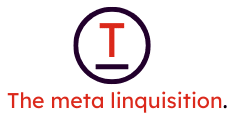Stress is a prevalent health concern in today’s fast-paced world. With demanding work schedules, household chores, and social obligations, managing stress can seem like an insurmountable task. However, the National Institutes of Health (NIH) suggest that effective stress management and relaxation techniques can significantly improve your mental and physical health. This article aims to provide a comprehensive review of these techniques while helping you understand how to practice them for long-lasting relief.
Understanding Stress and Its Impact on Health
Stress is a natural physiological response to perceived threats or overwhelming situations. When you face a challenging situation, your body reacts by increasing your heart rate, quickening your breath, and releasing stress hormones like adrenaline. While these reactions can be beneficial in the short term, chronic stress can lead to various health issues.
In the same genre : The benefits of regular blood pressure monitoring
Prolonged stress impacts multiple body systems, leading to symptoms such as headaches, muscle pain, disturbed sleep, and changes in appetite. It can also exacerbate existing health conditions and increase the risk of developing mental health disorders like anxiety and depression. Therefore, stress management is not just about feeling better in the moment – it’s about protecting your future health as well.
Breathing Techniques for Relaxation
One of the simplest yet most effective stress management techniques is controlled breathing. When you’re under stress, your breathing tends to become shallow and rapid, which can increase feelings of anxiety. By consciously focusing on your breath, you can reduce these symptoms and promote a state of calm.
Also read : Natural remedies for headache relief
The NIH recommends practices such as deep breathing, progressive muscle relaxation, and yoga for stress relief. Deep breathing involves intentionally slowing your breath, taking longer inhales and exhales, and focusing on your diaphragm’s rise and fall.
Progressive muscle relaxation involves systematically tensing and then releasing each muscle group, starting from your toes and working up to your head. This technique not only promotes relaxation but also increases awareness of physical sensations, helping you identify and address areas of tension.
Mindfulness and Meditation
Mindfulness is the practice of focusing your attention on the present moment, without judgment or distraction. It involves acknowledging your thoughts, feelings, and sensations as they arise, then letting them pass without getting caught up in them.
Meditation is a mindfulness-based practice that can involve focusing on your breath, repeating a mantra, or visualizing a peaceful scene. By practicing mindfulness and meditation, you can train your mind to resist stress, reduce anxiety, and promote overall wellbeing.
Physical Activity and Stress Management
Physical activity is a well-documented stress reliever. It not only distracts you from stressful thoughts but also helps your body metabolize the stress hormones circulating in your bloodstream.
Exercise of any kind, from walking to weightlifting, can offer stress relief. However, activities that incorporate mind-body connection, like yoga and tai chi, are particularly effective for stress management. These practices combine physical postures, controlled breathing, and meditation to promote full-body relaxation.
Healthy Lifestyle Choices for Stress Reduction
Aside from specific relaxation techniques, making healthy lifestyle choices can also help manage stress. Eating a balanced diet, maintaining a regular sleep schedule, and avoiding alcohol, caffeine, and nicotine can go a long way in reducing stress levels.
Furthermore, spending time with loved ones, pursuing hobbies, and taking time off work when necessary can also contribute to better stress management. Remember, it is crucial to make time for relaxation amidst the hustle of daily life.
Professional Help for Stress Management
In some cases, stress can become so overwhelming that professional help may be needed. Therapists and psychologists are trained to help you understand and manage stress, using techniques such as cognitive-behavioral therapy and stress management training.
Remember, seeking help is not a sign of weakness. Instead, it’s a proactive step towards protecting your health and wellbeing. As with any health issue, early intervention can drastically improve outcomes for stress-related disorders.
Implementing Guided Imagery for Relaxation
Guided imagery is a relaxation technique that involves creating calming and peaceful images in your mind. This method can significantly reduce stress levels, lower blood pressure, and promote a relaxation response in the body. It is particularly beneficial for individuals dealing with anxiety and depression, as visualizing positive scenarios can help shift their focus away from negative thoughts and emotions.
As suggested by the Mayo Clinic, to practice guided imagery, find a quiet and comfortable place where you won’t be disturbed. Close your eyes and take several deep breaths. Imagine a serene setting, such as a beach or a forest. Try to involve all your senses – hear the waves or birds, feel the sand or leaves under your feet, smell the sea or the flowers. Stay in this imagined place for as long as you feel comfortable.
Guided imagery can also involve visualizing yourself achieving goals, successfully handling stressful situations, or feeling healthy and relaxed. With regular practice, this technique can help you develop a more positive and relaxed outlook, making it easier to manage stress in your daily life.
The Science Behind Relaxation Techniques
Numerous scientific studies have confirmed the effectiveness of relaxation techniques for stress relief. According to a systematic review published on NCBI NLM NIH, practices like deep breathing, progressive muscle relaxation, guided imagery, and tai chi can significantly reduce stress levels and improve mental health.
Deep breathing can lower heart rate and blood pressure, providing immediate relief from acute stress. Progressive muscle relaxation can help identify and release tension in the body, promoting physical relaxation. Guided imagery can shift focus from stressors, reducing anxiety and promoting a positive mood. Tai chi, with its combination of mindful movement and breathing, can also reduce stress and enhance wellbeing.
Therefore, incorporating these practices into your daily routine can not only help manage stress but also improve overall health and quality of life.
Conclusion
Stress is a common aspect of life in today’s fast-paced world. However, it’s not insurmountable. With the help of the relaxation techniques discussed in this article, such as deep breathing, progressive muscle relaxation, mindfulness, meditation, physical activity, healthy lifestyle choices, guided imagery, and professional help, you can effectively manage your stress levels and enhance your mental health.
Remember, the goal is not to completely eliminate stress from your life but to develop skills and techniques that help you handle it effectively. Regular practice of these techniques can equip you with the ability to weather stressful situations with ease, ensuring your long-term health and wellbeing.
Whether you are dealing with work-related stress or facing personal challenges, these techniques can provide substantial relief. However, if you find your stress becoming overwhelming or leading to persistent anxiety or depression, it’s crucial to seek professional help promptly. In the journey of managing stress, remember that you are not alone, and help is always available.











